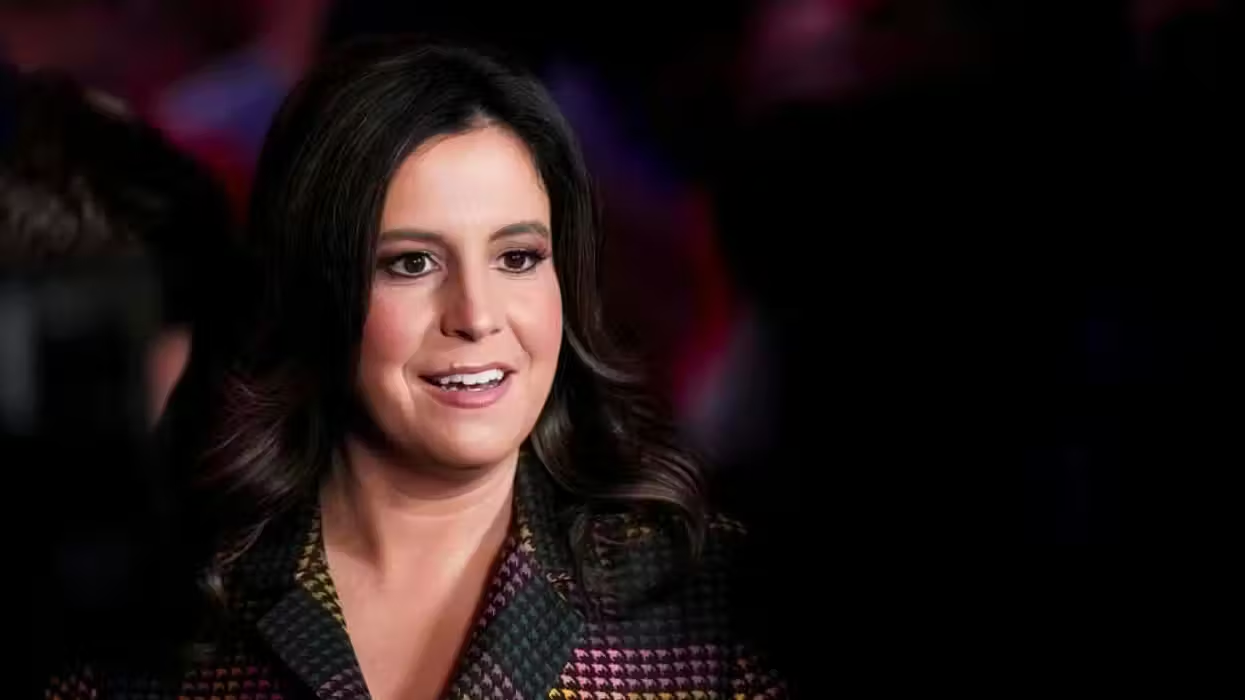
© 2025 Blaze Media LLC. All rights reserved.
Editor’s note: The Blaze is featuring some guest posts to help our readers gain a deeper understanding of the situation in Egypt. This post is by retired Army Lt. General William Boykin.
April 24th , 2315 hrs, 1980 - Dash-t-Kavir, Iran

I watched in disbelief and horror, standing in the Iranian desert about a hundred miles from Tehran, as eight brave Americans died in the fiery collision of two military aircraft while conducting a clandestine refueling operation. Our mission was difficult and we knew it going in. We were in this remote desert location to do our final refueling before heading for the American Embassy in Tehran to rescue fifty two American diplomats who were being held hostage by Iranian students. These students were the same people who had been hailed by western media as “ Democratic Revolutionaries”. As we flew out of the Iranian desert that night, taking our injured back to the safety of Egypt, I pondered the events of the past eighteen hours. I realized as a young officer in the Army’s Delta Force that there were things in world affairs that were just not what they seemed to be and I was filled with perplexing questions. How could a democratic movement result in this kind of carnage? The world media had been so positive about the prospects of democratic reform in the post-Shah era in Iran. And now, my eight comrades would return home to military funerals instead of a heroe’s welcome.
Shah Reza Pahlavi, who had ruled Iran for nearly three decades as a pro- American despot departed Iran in January of 1979 under pressure from Iranian demonstrators who called for democratic reform and an end to the Shah’s reign. The Iranian dictator had used his secret police, the Savak, to control the Iranian opposition. And now the population was protesting. Their inspiration was an exiled spiritual leader who had repeatedly called for democracy in his writings and audio tapes that were smuggled into Iran. The demostrators were certain that he would bring democratic reform. One reporter in Tehran at the time of the Shah’s departure said, “ There was nothing but sheer delight on the faces of the demonstrators who took to the streets of their capital in their thousands to celebrate the departure of the man they have hated for so long." 1 But the jubilation soon turned to desperation as the Ayatollah Ruhollah Khomeini returned from exile in Paris in February, 1979 to establish an Islamic Republic and implement Sharia law. 2 Ultimately, Khomeini’s Islamic Republic would prove to be far more repressive and lethal than the Shah’s, killing thousands of dissidents and forcing the brutality of Sharia law on the population. One of the 1979 protesters is now a BBC reporter who summed up the dissapointment and sentiments of the students who took to the streets of Tehran to force democratic reform. Kasra Naji recalls “ What happened in Iran was exactly what we were looking for. We wanted democracy, and the revolution was promising that. And we’ve got to this point, that today, the extreme of the Islamic establishment is in power today in the shape of President Ahmadinejad”.3
The question now is whether the departure of Hosni Mubarak will result in true
democracy or another Islamic Republic. Americans want to believe that freedom will prevail and that this is the beginning of a regional move toward democracy. I pray that this is the case. But I am skeptical. Too many factors point toward an Islamic Republic emerging in Egypt. The Muslim Brotherhood is using the same tactics that Khomeini used in Iran, preaching democratic reform while strategizing for the implementation of Sharia. The new head of the Muslim Brotherhood, Mohammed Badie, has called for the Koran to “ become our constitution” in Egypt. Both Badie and his predecessor have outlined their political plans for Egypt in the platform for the Muslim Brotherhood. This platform calls for an Islamic Republic where “Sharia is the main source of legislation." 4 The ultimate goal of the Muslim Brotherhood is to establish an Islamic Caliphate where Sharia law will prevail.
The argument that the Muslim Brotherhood has little support in Egypt is misleading. The Muslim Brotherhood was outlawed by Mubarak. The fact that Egyptians have not acknowledged their ideological or political alignment with an illegal organization is no surprise. In reality, the latest Pew research shows that approximately 85% of Muslims in Egypt believe that Islam’s influence in politics is positive. Islamic law is a fundamental of adherence to the Koranic teachings. So how serious are Egyptians about Islam? If they are influenced by the most well organized and well funded of the groups in Egypt, the Muslim Brotherhood, Islamic law or Sharia, will become the law of the land. Democratic reform will not be Jeffersonian and the concept of Individual freedom will be defined by the Islamic clerics. Women will continue to suffer abuse and suppression. Every man and woman who crowded into Tahrir Square will find themselves wondering if this is the outcome they expected. I sincerely hope that the Egyptian people recognize the dangers of allowing the Muslim Brotherhood to set the agenda for this post-Mubarak government. Should the Situation in Egypt follow the pattern of the Islamic Revolution in Iran, the future of the Middle East and the Islamic world is one that should be of great concern to the West.
Footnotes
- National Public Radio website, August 17, 2009, Steve Inskeep interviews BBC journalist Kasra Naji, Page 1
- Iran Chambers Society website, History of Iran, Islamic Revolution of 1979, February 13, 2011, Page 1
- National Public Radio website, August 17, 2009, Steve Inskeep interviews BBC journalist Kasra Naji, Page 1
- Bible Prophecy Blog by Bob Maginnis, February 7, 2011, Page 2
Want to leave a tip?
We answer to you. Help keep our content free of advertisers and big tech censorship by leaving a tip today.
Want to join the conversation?
Already a subscriber?
more stories
Sign up for the Blaze newsletter
By signing up, you agree to our Privacy Policy and Terms of Use, and agree to receive content that may sometimes include advertisements. You may opt out at any time.
Related Content
© 2025 Blaze Media LLC. All rights reserved.
Get the stories that matter most delivered directly to your inbox.
By signing up, you agree to our Privacy Policy and Terms of Use, and agree to receive content that may sometimes include advertisements. You may opt out at any time.






